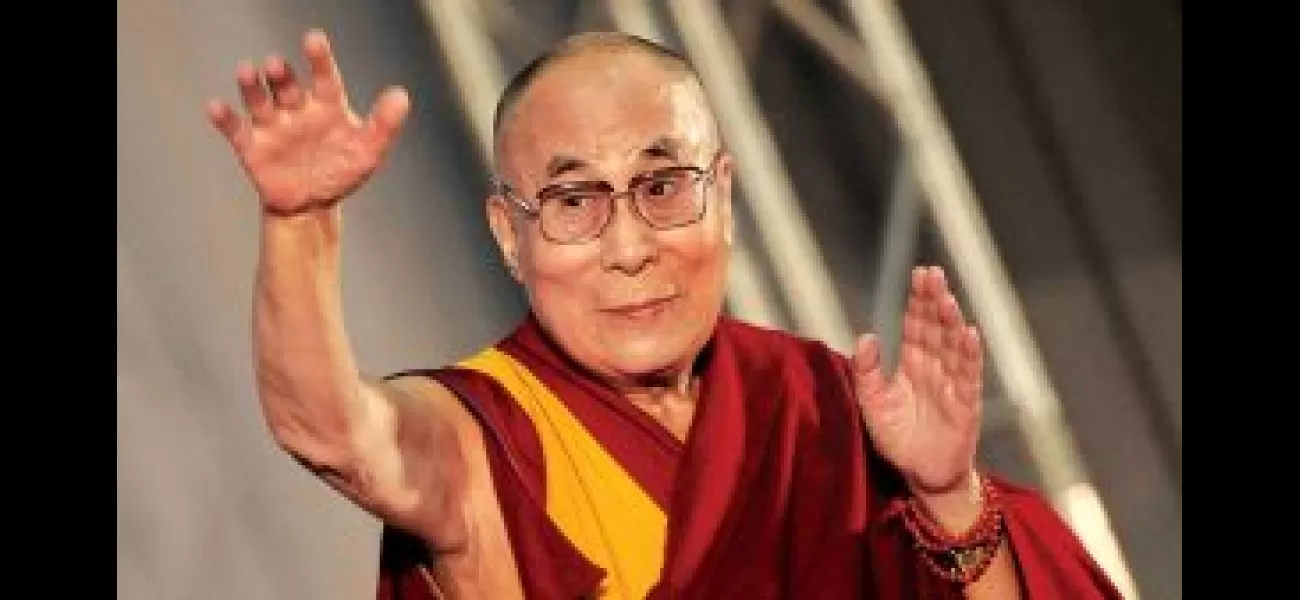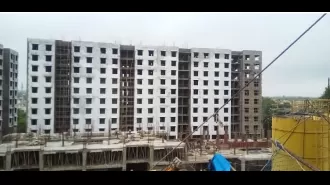US Congressional group headed to India to meet Dalai Lama in the upcoming week.
US congressional delegation to visit Dharamsala and meet Dalai Lama next week, including Chair of Foreign Affairs Committee Michael McCaul and former House speaker Nancy Pelosi.
June 14th 2024.

Next week, two prominent US lawmakers, Michael McCaul and Nancy Pelosi, are planning to visit Dharamsala, a town nestled in the Himalayas, to meet with the Dalai Lama, a revered Tibetan spiritual leader. This high-level bipartisan delegation is expected to arrive on June 18 and stay until June 19, according to reliable sources.
The timing of this visit holds great significance as it comes just before the Dalai Lama's scheduled trip to the US for medical treatment. Dharamsala is home to the Tibetan government-in-exile, which represents the interests of over one lakh Tibetans residing in approximately 30 countries. The US has been a strong advocate for the Tibetan cause, condemning any mistreatment or coercion by China towards Tibetans.
In fact, the US Congress recently passed a resolution calling for a peaceful resolution to the ongoing dispute over Tibet's status and governance. The "Resolve Tibet Act" also urges China to resume dialogue with the Dalai Lama. American lawmakers have been making regular visits to Dharamsala, a testament to Washington's unwavering support for the Tibetan people.
From 2002 to 2010, representatives from the Dalai Lama's camp and the Chinese government engaged in nine rounds of talks, unfortunately without any significant progress. Since then, no formal discussions have taken place. During these talks, the Tibetan side proposed genuine autonomy for their people in accordance with the Dalai Lama's "middle-way policy," which advocates for a peaceful resolution through dialogue.
In April, Penpa Tsering, the Sikyong or political head of the Tibetan government-in-exile, revealed that back-channel talks had been initiated with Beijing in hopes of finding a resolution to the Tibet issue. This was seen as a positive step towards restarting the formal dialogue process, which had come to a standstill due to anti-China protests in Tibet and Beijing's hardline stance towards the region.
However, Beijing quickly responded by stating that they would only engage in talks with representatives of the Dalai Lama and not with the government-in-exile. The Dalai Lama has been living in India since 1959, after fleeing Tibet following a failed uprising against Chinese rule. China has accused him of being a separatist and causing division in Tibet, while the Dalai Lama maintains that his aim is to secure genuine autonomy for all Tibetans living in the three traditional provinces of Tibet.
Tensions between the two sides heightened in 2008 due to widespread protests in Tibetan areas. Despite the challenges, both sides have shown a willingness to re-engage in dialogue after over a decade of no formal talks. The US congressional delegation's visit to Dharamsala serves as a reminder of the strong support for the Tibetan people and their cause.
The timing of this visit holds great significance as it comes just before the Dalai Lama's scheduled trip to the US for medical treatment. Dharamsala is home to the Tibetan government-in-exile, which represents the interests of over one lakh Tibetans residing in approximately 30 countries. The US has been a strong advocate for the Tibetan cause, condemning any mistreatment or coercion by China towards Tibetans.
In fact, the US Congress recently passed a resolution calling for a peaceful resolution to the ongoing dispute over Tibet's status and governance. The "Resolve Tibet Act" also urges China to resume dialogue with the Dalai Lama. American lawmakers have been making regular visits to Dharamsala, a testament to Washington's unwavering support for the Tibetan people.
From 2002 to 2010, representatives from the Dalai Lama's camp and the Chinese government engaged in nine rounds of talks, unfortunately without any significant progress. Since then, no formal discussions have taken place. During these talks, the Tibetan side proposed genuine autonomy for their people in accordance with the Dalai Lama's "middle-way policy," which advocates for a peaceful resolution through dialogue.
In April, Penpa Tsering, the Sikyong or political head of the Tibetan government-in-exile, revealed that back-channel talks had been initiated with Beijing in hopes of finding a resolution to the Tibet issue. This was seen as a positive step towards restarting the formal dialogue process, which had come to a standstill due to anti-China protests in Tibet and Beijing's hardline stance towards the region.
However, Beijing quickly responded by stating that they would only engage in talks with representatives of the Dalai Lama and not with the government-in-exile. The Dalai Lama has been living in India since 1959, after fleeing Tibet following a failed uprising against Chinese rule. China has accused him of being a separatist and causing division in Tibet, while the Dalai Lama maintains that his aim is to secure genuine autonomy for all Tibetans living in the three traditional provinces of Tibet.
Tensions between the two sides heightened in 2008 due to widespread protests in Tibetan areas. Despite the challenges, both sides have shown a willingness to re-engage in dialogue after over a decade of no formal talks. The US congressional delegation's visit to Dharamsala serves as a reminder of the strong support for the Tibetan people and their cause.
[This article has been trending online recently and has been generated with AI. Your feed is customized.]
[Generative AI is experimental.]
0
0
Submit Comment





